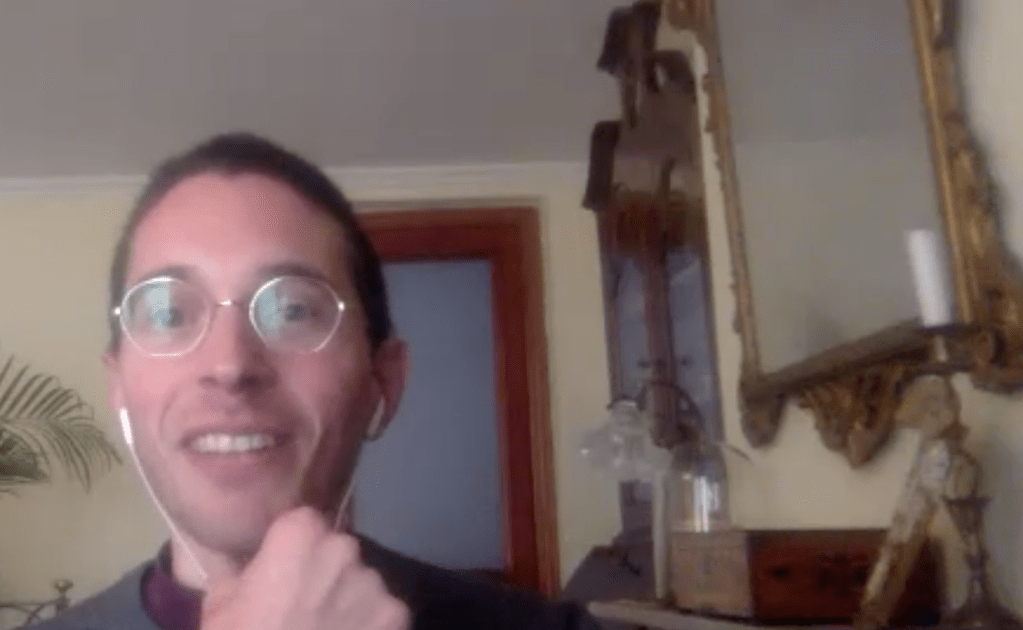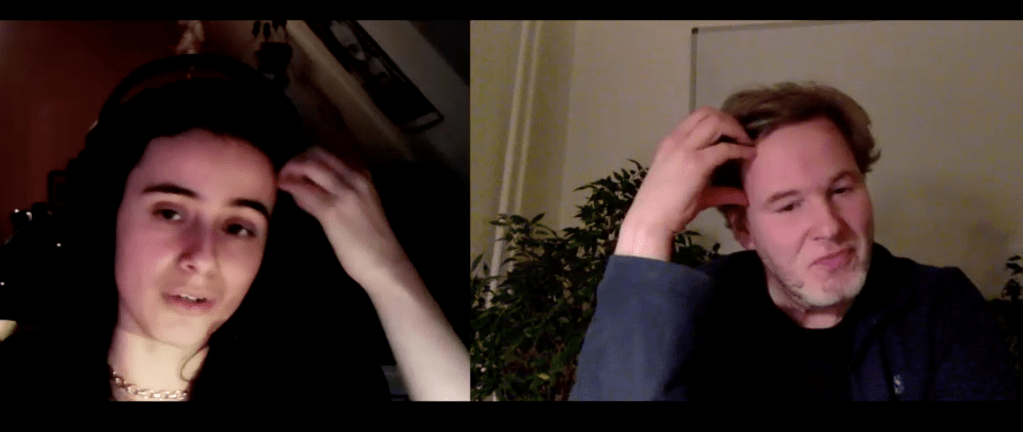In a previous blog post, Martin wondered what we can say about the current crisis without simply repeating or questioning statistics or predictions. And he answered this question in a performative manner, as I interpreted it, namely by devoting most of his blog post to a discussion centered around the importance of personal experience in this time of crisis.
And this might be thought to be a good point of departure, too, since we are dealing with a crisis of such a massive scale that we all feel and experience it personally in any case. That is to say, irrespective of our geographical location or societal context, the crisis appears to us in the guise of something that immediately intrudes into and changes our lives. And so, the outbreak of Covid-19 affects us all, globally and indiscriminately, but at the same time also in irreducibly personal ways. And this makes is so that we are, perhaps, better served by personal experience than by imagination or theory if we want to understand our current situation, or so one might think.
However, this is a thought that needs to be heavily qualified and scrutinized, I believe, because, as it turns out, we are indeed all affected by the current crisis, but not all in the same way or in the same measure. And this renders an uncritical reference to personal experience more than a little problematic, seeing as it could all too easily lead into false generalizations and ideological deadlocks.
This is a problem that became especially pronounced, to my mind, when I considered Martin’s personal experience as he described it in his above-mentioned blog post and compared it with my own personal experience and the experiences that were reported by my friends. Because whereas Martin (and some of my friends) reported experiences of disorientation, confusion, and a loss of cognitive mapping in light of the crisis, I myself (and some of my other friends) reported experiences of validation, of a strengthening of our pre-existing beliefs, and of ideological certitude.
And so, the questions that I began asking myself, in light of these conflicting reports, were questions along the lines of ‘Who is actually on the right track here?’ and ‘Whose experiences are epistemically reliable?’. After all, if we assume that our personal experience of orientation or disorientation – i.e., our sense of our ability to ‘make sense’ of things – has an epistemic import, then it is not so outlandish to believe that an experience of disorientation might indicate a cognitive failure and that an experience of orientation might indicate a cognitive success.
But this is precisely a juncture at which I recognize a possibility for an error to creep into our thinking. Because it seems to me that an experience marked by a sense of having found one’s orientation despite the maelstrom of events is, in fact, always epistemically uninformative; whereas an experience marked by disorientation can be epistemically informative, but, even then, only in a negative way.
And so, to illustrate, let us first consider the experience of (still) being able to make sense of things. This has so far been my own experience in the face of the crisis and it is the reported experience of some of my friends, too, which means that it can be said that, for us, nothing has fundamentally changed since the beginning of the crisis. Our beliefs and expectations did not need to be altered because of the Covid-19 outbreak, and the worldwide response to it only confirmed our pre-existing beliefs and expectations.
The reasons for this are multifaceted and complex, as they are wont to be, but for the most part they boil down to us being Marxists. And so, naturally, we have no faith in the bourgeois state that can be eclipsed by its current legitimation crisis, nor any confidence in market economies that can be shaken by the onset of yet another economic recession. Moreover, as Marxists, we have of course been having a field day in theoretical and political discussions in the last weeks, because the way in which the crisis is unfolding – tragic as it may be – makes our positions easier to illustrate and more defensible than they have been in decades. Indeed, from a certain perspective, it may even seem as though the response to the current crisis, which is shaped by material pressures and practical necessities more than that it is determined by any normative ideals or moral considerations, has been specifically designed to provide new empirical grounds for historical materialists to stand on.
And so, for us, there is no disconfirmation; no disorientation. Our personal experience has a rather sanguine overall character in spite of all that has happened, and our beliefs have never seemed more true or justified than they seem now. But, even so, this momentary stability or sense of coherence does not, to my mind, bear any positive epistemic significance. After all, it could be based on quicksand.
Indeed, in this regard the standpoint that my Marxist friends and I now avail ourselves of is, structurally speaking, not so different from the standpoint that Francis Fukuyama availed himself of when he announced the end of history and the timeless marriage of liberal democracy and free market capitalism. That allowed him to make sense of many things, too, at a time when any honest Marxist would have admitted to feeling very disoriented in light of the then-recent world historical events and the collapse of ‘actually existing socialism’. Yet the tables have turned on Fukuyama rather spectacularly in the meantime, and nothing about his experience of being able to make sense of things at the time could have tipped him off to that possibility, I imagine.
So, the experience of being able to make sense of things is, in itself, not epistemically useful. It makes one neither better nor worse off when it comes to finding the truth or developing appropriate ways of relating to the world. After all, an experience such as this can occur accidentally, too, due to unknown or misunderstood causes that only make it seem as though one has understood something, while one has, in fact, misapprehended or badly contextualized it. And, of course, we also have a tendency of initially repressing our awareness of any evidence that makes our heartfelt convictions and cherished frameworks unworkable, meaning that we sometimes still feel like we can make sense of things even though some pieces of the puzzle already do not quite fit.
But what about the opposite experience, then? What about an experience of disorientation, such as the one that Martin and others reportedly have (had) in light of the crisis?
Well, here I think things look differently. That is, I think that an experience of disorientation can be epistemically useful, even when it is considered by itself. And the reason for this is that an experience of disorientation occurs when one is trying to orient oneself – i.e., when one is trying to make sense of things – but is frustrated in the attempt. And it seems to me that such an experience of frustration, as a rule, needs to have some real cause.
After all, why would one have trouble making sense of things if there is not something outside of oneself that directly and manifestly renders one’s ideas unfeasible or unfitting? And so, for this reason, it can safely be said that an experience of disorientation almost certainly reflects an actual incongruity between the reality one tries to subsume under one’s Notion, on the one hand, and one’s Notion itself, on the other hand. Moreover, this will be an incongruity that one, in some sense, cannot get around when one has such an experience. The contradiction is too obvious or too glaring here; it distorts one’s whole experiential field, that is why one feels disoriented.
And, what is more, it seems likely that, if one attends to one’s experience of disorientation closely enough, one can glimpse the real cause of the disorientation, too, precisely because the experience of disorientation is so intimately tied to some directly experienced incongruity. And this then also means that the experience of disorientation provides a key, not so much to positive knowledge, but certainly to a specific diagnosis of what went wrong. In other words, an experience of disorientation immanently provides the dialectical means to its own solution; at least when one attends to it closely enough. Or that is the hope anyway.
However, beyond this, I doubt that personal experience – even when it is theoretically developed and considered as a totality – should be considered a reliable guide to positive knowledge. It is simply too partial and conditioned, and not to mention too determined by self-serving interests, for us to put stock in it.


